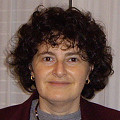What Do We Talk About When We Talk About Women?
This year the theme of the European Day of Jewish Culture (September 14) does not seem on the surface to pose problems of interpretation. There is no ambiguous “2.0”; no doubts as to what constitutes Jewish humor (or even if it exists); no discussions about how the term “nature” should be understood. There’s little to debate about what a woman is. The complications arise when we must decide instead what Judaism is: do we mean only Orthodox Judaism, given that the Italian Jewish Communities are all—at least formally—Orthodox? But how can avoid consideration of other denominations? Certainly visitors will ask about women rabbis, and we cannot pretend that they don’t exist.
And, even remaining within the sphere of Orthodoxy, will we attempt to present a standardized vision, or will we acknowledge the notable differences that exist? Will we talk about women who read the Sefer Torah, or those who were taught that Torah study is only for men and does not concern them? Will we touch upon the delicate matters concerning family rights in Israel? Will we mention the women who struggle to obtain a divorce and the blackmail that they are often subject to? Or will we present a homogenized image of woman in Judaism, unproblematic and sugarcoated? Perhaps we will ignore these problems altogether and limit ourselves to talking solely about the past, focusing on Biblical and historical figures, clothing and recipes.
 Naturally, we’ll tell our visitors that women have a central role in Judaism. Sure, they can’t become rabbis, can’t be part of a bet din, can’t make halachic rulings, and therefore can do nothing but accept decisions made by others, but what does it matter? True, they can’t officiate, or even make their voices heard in a synagogue—often they can’t even hear or see decently what is going on, because they are relegated to distant and uncomfortable areas of the sanctuary—however, the role of women in Judaism is very important: it’s a well known fact that is not up for debate. Perhaps we’ll explain that all these impositions are really in place only to protect women: that the obligation of covering oneself (even in 90° heat) liberates women from the risk of being reduced to objects; that we can’t let ourselves be seen or heard by men during prayer, because they would be distracted, while we—who are wiser and better able to control ourselves—can watch and listen to them, no problem. In short, we will say that in Judaism women are cared for much better than in other cultures and religions (as all cultures and religions say).
Naturally, we’ll tell our visitors that women have a central role in Judaism. Sure, they can’t become rabbis, can’t be part of a bet din, can’t make halachic rulings, and therefore can do nothing but accept decisions made by others, but what does it matter? True, they can’t officiate, or even make their voices heard in a synagogue—often they can’t even hear or see decently what is going on, because they are relegated to distant and uncomfortable areas of the sanctuary—however, the role of women in Judaism is very important: it’s a well known fact that is not up for debate. Perhaps we’ll explain that all these impositions are really in place only to protect women: that the obligation of covering oneself (even in 90° heat) liberates women from the risk of being reduced to objects; that we can’t let ourselves be seen or heard by men during prayer, because they would be distracted, while we—who are wiser and better able to control ourselves—can watch and listen to them, no problem. In short, we will say that in Judaism women are cared for much better than in other cultures and religions (as all cultures and religions say).
In essence, this year’s theme is clear; how we will handle it, however, is neither simple nor self-evident. I foresee, as in years past, divergent opinions and heated discussions about how to organize the Day. Perhaps within the same Community, within a few steps of one another, different Jewish organizations will put forth different ideas of women in Judaism. I don’t think this is a bad thing at all; on the contrary, I hope that no one is tempted to ignore the problems and the divergence of opinion that exist in order to offer a homogenized and sugarcoated image of Judaism. This is not what our visitors will be searching for.
*Anna Segre is a teacher. The article was translated by professor Daniel Leisawitz, Italian Studies, Muhlenberg College, Chew St. Allentown, Pennsylvania USA.

